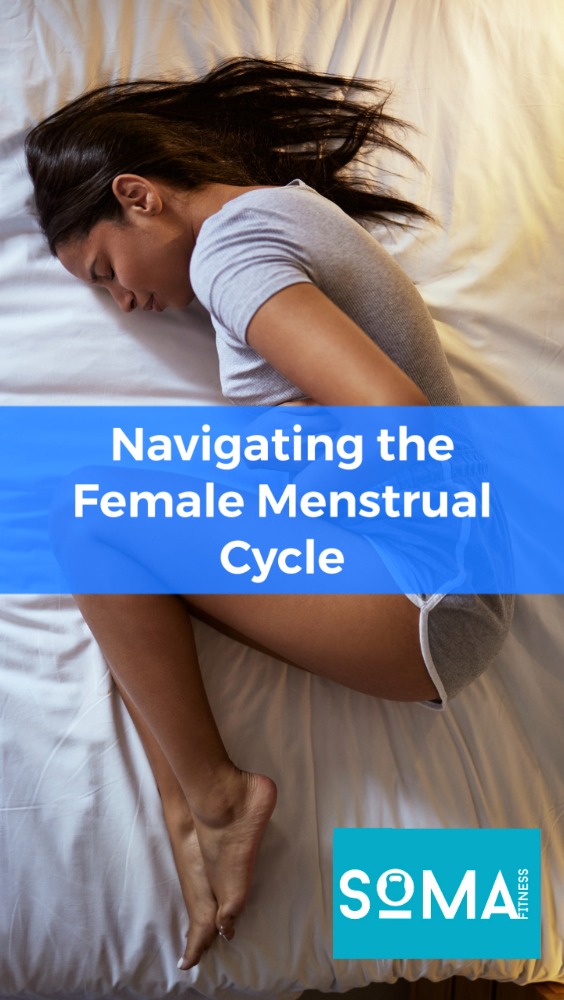Navigating the Female Menstrual Cycle
As a personal trainer, I’ve had the privilege of working closely with numerous female clients, witnessing the impact of hormonal phases on their fitness journeys. Understanding and adapting to these fluctuations is key to achieving long-term habits the lead to success. In this article, I’ll share my experiences as a personal trainer and provide guidance on how to understand your body and navigate each menstrual cycle with a strategic approach.
Understanding Your Body:
The first step in successfully navigating hormonal phases is understanding your body and recognising the unique patterns and challenges it presents throughout the menstrual cycle. Take note of how you feel during each phase, such as changes in energy levels, mood, and physical sensations. By gaining insight into your body’s signals, you can make informed decisions regarding your training and nutrition and develop a strategy that can work for you and your goals.
Developing a Strategic Approach:
Once you’ve familiarised yourself with your body’s patterns, it’s time to develop a strategic approach to optimise your training and overcome potential obstacles. Here are some key strategies to consider for each phase of the menstrual cycle:
Follicular Phase:
During the follicular phase (right after menstruation), energy levels tend to be higher. Capitalise on this by scheduling more challenging workouts around this phase and set more ambitious goals. Use this time to focus on building strength and pushing yourself through your sets, as your body more geared up for progress and tougher workouts.
Ovulatory Phase:
The ovulatory phase is characterised by an increase in estrogen levels, which can enhance mood and motivation. Take advantage of this phase to push yourself further, both mentally and physically. Incorporate more high-intensity workouts, advanced sets like drop sets and rest pause technique’s, and include the more challenging exercises that you may find difficult like a pendulum squat for example and capitalise on your peak performance.
Luteal Phase:
The luteal phase, which precedes menstruation, may come with increased cravings and mood swings. Combat cravings and emotional eating by prioritising balanced meals, including plenty of protein, healthy fats, and complex carbohydrates. Opt for smaller, more frequent meals to help stabilise blood sugar levels and manage hunger levels. Engaging in stress-reducing activities such as breath work or meditation can also support emotional well-being. Low intensity cardio with nasal breaths can be a great way to assit with recovery and reduce stress. Reduce the intensity within your resistance training, use more controlled tempos with your reps and don’t try and break any PBs.
Menstrual Phase:
During the menstrual phase, listen to your body and prioritise self-care. While some women may find that exercise helps alleviate menstrual discomfort, others may benefit from gentler activities like restorative yoga or light walks. Give yourself permission to adjust your training intensity and focus on recovery. Adequate sleep, hydration, and nutrient-dense foods will aid in replenishing your energy levels. Be kind to your partners they do still love you!
Strategic Check-ins and Weight-ins:
To monitor progress effectively and align with the hormonal phases, consider scheduling check-ins and weight-ins strategically. Aim to schedule weight-ins during the early follicular phase to minimise the impact of bloating and water retention. When I was a younger personal trainer I made the mistake of keeping the check ins and weight ins consistent which made matters worse for my clients as the combination of emotions and seeing scale weight creep up slightly was doing them more harm to their progress than good.
Navigating hormonal phases requires understanding your body, developing a strategic approach, and optimising your training and nutrition accordingly. By recognising the unique challenges and strengths of each phase, you can adapt your approach to maximise progress and overcome obstacles. Remember, your journey is personal and may vary from others, so listen to your body, be kind to yourself and your partners, and consult with your personal trainer if needed. With a strategic approach, you won’t allow your menstrual cycle to get the better of you and hinder your progress, it’s important to accept it and stick to the plan you make to get through each stage.


Leave a Comment
(0 Comments)